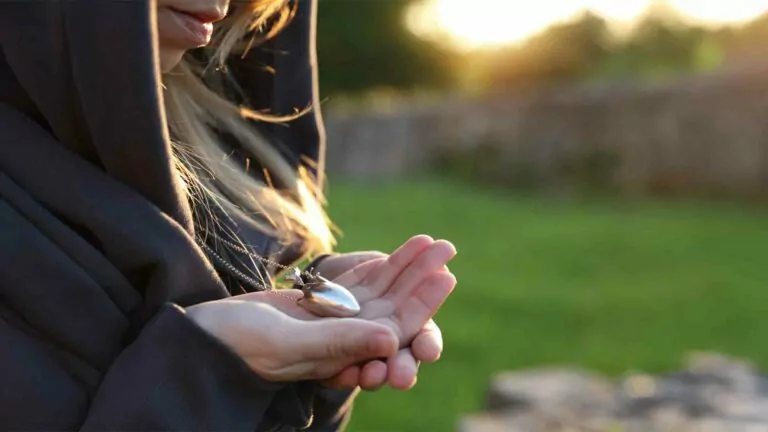When it comes to finding true happiness, do the opposite of what culture says
*****
Making the happiness crisis in America even worse, especially for young people, are completely wrong diagnoses. What’s needed to increase happiness is not more money, more stuff, or more “authenticity.” As Dr. Thaddeus Williams explains in his book Don’t Follow Your Heart, at the root of our problem is the terrible advice about how to achieve happiness that’s been repeated across our culture for over a decade now. Here’s Dr. Williams to explain:
“For years my children and I have played a game together called Spot the Lie. If they can identify a false idea in whatever we happen to be watching, they earn one dollar. When she was nine years old, my daughter Holland (‘Dutch’ for short) came cheerfully bounding down the stairs, saying, ‘You owe me another dollar!’ ‘What did you find this time, Dutch?’ ‘The commercial told me I should follow my heart,’ she answered. ‘Okay, so where’s the lie?’ I asked. Her answer, and I recall it verbatim, was, ‘Daddy, I don’t want to follow my own heart. My heart is fallen. I’d way rather follow God’s heart.’ Cue the proud daddy tears. Let’s just say she earned five dollars for that one.
“Some may think, What a shame—he’s indoctrinating that poor girl. The opposite is true. I’m trying to make a heretic out of her. I want her to question and ultimately rebel against the doctrines of our day. According to Barna, 84% of Americans believe the ‘highest goal of life is to enjoy it as much as possible,’ 86% believe that to be fulfilled requires you to ‘pursue the things you desire most,’ while 91% affirm that ‘the best way to find yourself is by looking within yourself.’ It was Apple cofounder, black turtleneck enthusiast, and former Pixar chairman Steve Jobs who publicly declared, ‘There is no reason not to follow your heart.’
“Let’s resist the propaganda of expressive individualism of our day and answer the late Steve Jobs with four good reasons not to follow our hearts.
“First, our hearts are too dull. Validating our every feeling might be exhilarating at first. Yet we end up as what David Foster Wallace called ‘lords of our tiny skull-sized kingdoms, alone at the center of all creation.’ Looking inside our hearts does not give us limitless freedom so much as a bad case of claustrophobia. Don’t get me wrong, I have no doubt that our hearts are fascinating. But compared with following the heart of God, our hearts hold all the thrill of a prison cell.
“Second, our hearts are too dithering. The Greek philosopher Heraclitus famously said one never steps in the same river twice because it is always flowing. Our hearts, too, are in constant flux. Some hearts may be as turbulent as the Ganges in monsoon season, and others move like molasses on a cold day, but all human hearts are in motion. What God says is true about his image bearers is infinitely more trustworthy than whatever our fallen feelings say from one moment to the next. If we don’t want to end up in a chronic identity crisis, we shouldn’t take our flowing feelings at their word; take God at His. His joyous verdict about us is trustworthy and solid as stone.
“Third, our hearts are too divided. In The Abolition of Man, C. S. Lewis said,
‘Telling us to obey Instinct is like telling us to obey people. People say different things: so do instincts. … Each instinct, if you listen to it, will claim to be gratified at the expense of all the rest.’
Even Buddy Pine, the supervillain Syndrome from The Incredibles, gets the point. ‘You always say, “Be true to yourself,’” Pine complains to his former idol, Mr. Incredible, ‘but you never say which part of yourself to be true to!’
“Fourth, our hearts are too depraved. The call to automatic obedience makes sense only if we follow Rousseau in his dogma that ‘there is no original perversity in the human heart,’ or Joel Osteen in his teaching that the ‘heart is right.’ The Bible offers us a humbling dose of realism. Jeremiah said, ‘The heart is deceitful above all things, and desperately sick; who can understand it?’ Ecclesiastes tells us, ‘The hearts of the children of man are full of evil, and madness is in their hearts while they live.’ Given the sickness and insanity of our hearts, Proverbs 28:26 draws the blunt but correct conclusion: ‘One who trusts in his own heart is a fool.’
“Want to be miserable? Follow your dull, dithering, divided, and depraved heart. Want to find real joy? Take the wise advice of a 9-year-old, and follow God’s heart instead.”
Dr. Thaddeus Williams is a professor at Biola University and author of numerous books on theology and culture, including Don’t Follow Your Heart and Revering God.
For more resources to live like a Christian in this cultural moment, go to Breakpoint.org. This is reprinted with permission from the Colson Center.












